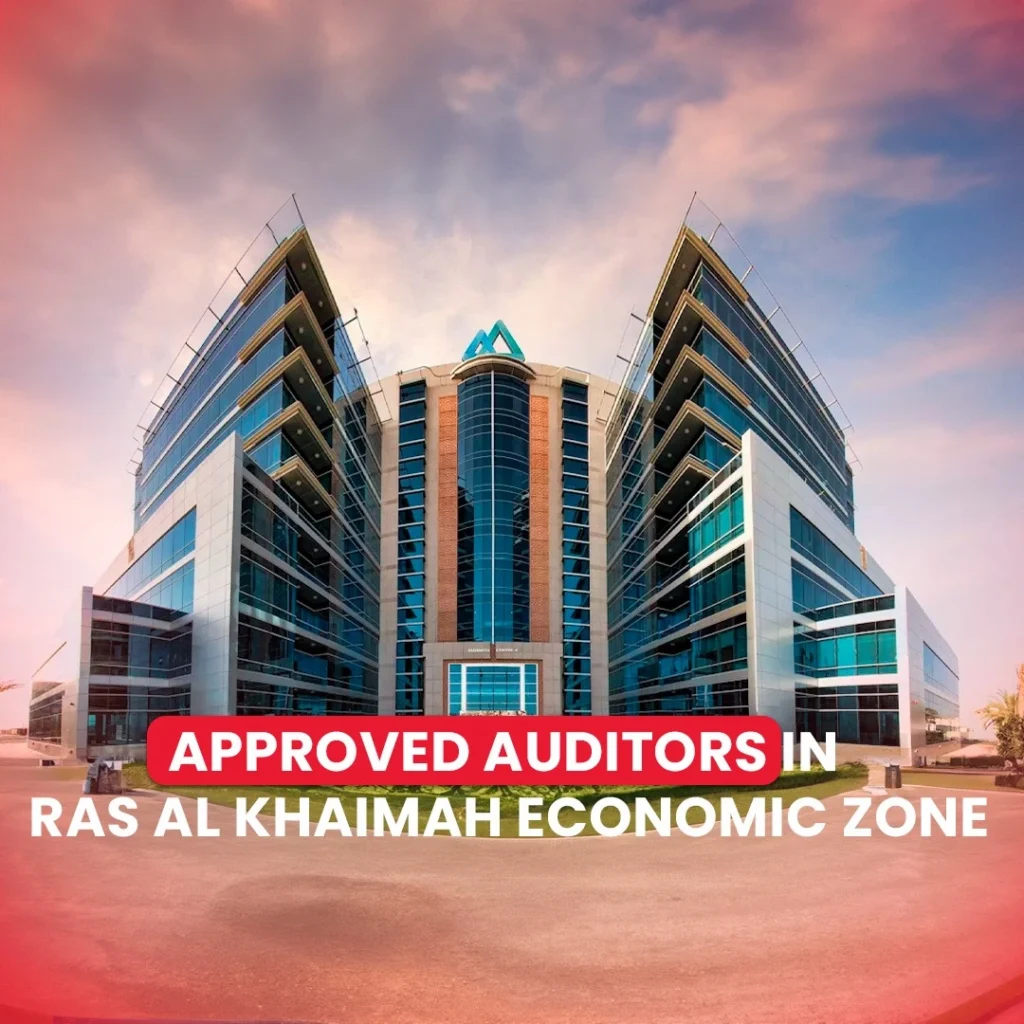Approved Auditors in Ras Al Khaimah Economic Zone
Ras Al Khaimah Economic Zone (RAKEZ) is a business powerhouse and leading industrial hub. It is a business licensing authority that offers customisable solutions for UAE company formation to free zone and non-free zone businesses in a multinational community of +23,000 companies that flourishes in over 50 sectors. They support most of the startups, enterprises & SMEs in the RAK Region.
| – | Why is RAKEZ Auditing required? |
| – | How should companies prepare & maintain accounting records for Auditing in RAKEZ? |
| – | Requirements to hire an Auditor in RAKEZ: |
| – | Services provided by a RAKEZ Auditor: |
| – | Documents needed by an Auditing Company in RAKEZ: |
| – | How can Mubarak Al Ketbi Chartered Accountants help you in RAKEZ Auditing? |
Why is Ras Al Khaimah Economic Zone Auditing Required?
In the United Arab Emirates, every business must use accounting. This is because they make it possible for the company to record its financial information, keep an eye on its trade payables and receivables, and help create correct business records that need to be turned in to the government.
However, it’s quite likely that errors will occur during accounting. This is when auditing comes in handy. Auditing is the process of identifying and removing errors from accounting files and procedures. This avoids a lot of issues for the company since if the accounting is incorrect.
| – | Then the financial data reported will be incorrect. This implies that the company’s perception of its financial situation will be skewed. |
| – | They won’t know who needs to be paid and who shouldn’t be. Trade payables will sporadically show up and demand payment, but trade receivables may afford to default. |
| – | The issued corporate documentation will thereafter be inaccurate. This may result in severe fines and, in certain situations, the cancellation of the company licence! |
How should companies prepare and maintain accounting records for Auditing in Ras Al Khaimah Economic Zone?
All companies that operate within the RAKEZ Free Zone are required to have accurate, current accounting records that fairly reflect their financial situation. Documentation demonstrating that the balance sheet and profit and loss were created in compliance with anti-money laundering (AML) regulations and International Financial Reporting Standards (IFRS) must be freely accessible to the company’s board.
There should be:
| – | Entry-level books and ledgers |
| – | Trade payables and receivables accounts |
| – | The income statement, balance sheet, and other financial documents that were used. |
Requirements to hire an Auditor in Ras Al Khaimah Economic Zone:
The RAKEZ Auditing Company needs to meet these two requirements:
| 1. | It is necessary to conduct an external audit. While accounting may be done both inside and outside the company, an external auditor is required for auditing. |
| 2. | This auditor has to be approved by the free zone authorities. To audit RAKEZ enterprises, the auditor needs permission from the Ras Al Khaimah Economic Zone Authority. Since Mubarak Al Ketbi has the RAKEZ Authority’s clearance, we are happy to assist |
Services provided by a Ras Al Khaimah Economic Zone Auditor
There are several forms of auditing, such as:
| – | Financial auditing is the process of checking the correctness and compliance with regulations of a company’s financial statements. |
| – | External Audit: We look at the business from the outside. |
| – | Stock Audit: We determine the value of the inventory and contrast it with the accounting data. |
| – | Liquidation Audit: To ensure appropriate liquidation during a company’s dissolution process, we inspect all assets and liabilities. |
| – | Internal Audit: We assess the effectiveness of the organisation’s accounting procedures, internal controls, and protocols. |
| – | Risk Management Audit: We evaluate protocols’ efficacy and safety as well as their potential to reduce risks in the future. And much more! |
Documents required by an Auditing Company in Ras Al Khaimah Economic Zone
The documents required are:
| 1. | Financial Statements. |
| 2. | Bank Statements. |
| 3. | Credit/ debit confirmation for all transactions. |
| 4. | Proof of bills and invoices. |
| 5. | Memorandum of Association (MoA). |
| 6. | Articles of Association (AOA). |
| 7. | Trade License. |
| 8. | Registration Details for VAT and Excise Tax. |
| 9. | Books of Accounts. |














